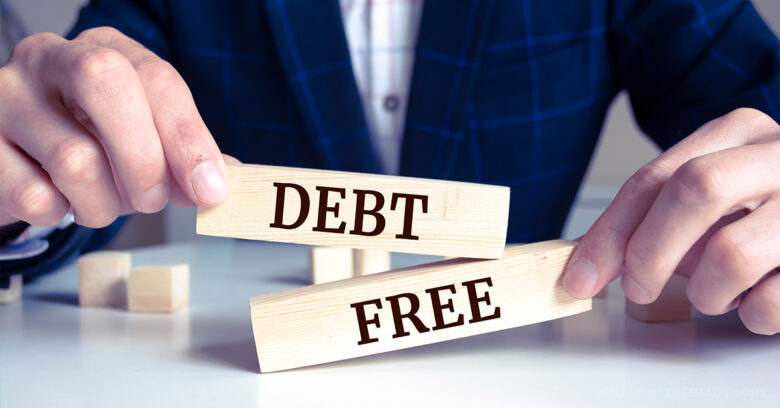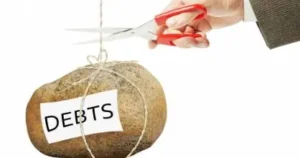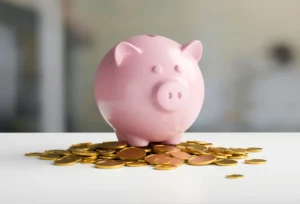If you have credit card bills, student loans, or other bills piling up, it can feel like you’re carrying a heavy backpack around with you. It’s not just about money; it’s about choice, inner peace, and freedom. Everyone wants to live a life without worrying about bills or phone calls from strangers. Living a debt-free life is not only possible but also achievable, as long as you have the right attitude and a clear plan. You don’t have to be a financial expert to achieve this. All you need to change your habits is a plan, some time, and a willingness. We’ll show you the practical steps anyone can take to get out of debt and build a future without worrying about money. There’s no filler here; just helpful tips to help you take control of your life and your money.
Understand Your Debt Situation Clearly:
Before you start paying off debt, you need to understand your situation. This means that you need to gather all of your credit card information, loan documents, past due accounts, and any other information about your debt. Many people either don’t know how much money they owe or don’t want to think about it. The first danger is. If you want to get rid of guilt, you have to face it. Write down all of your debts, including how much you owe, how much interest you pay, and how much you pay each month. These details will help you plan your trip and get a positive picture. It’s important to understand the difference between good debt, like a mortgage or student loan, and bad debt, like a high-interest credit card. Understanding your financial situation will boost your confidence and inspire you to take action.
Create a Budget That You Can Adhere To.
Your budget serves as your financial guide. You don’t need to worry about where your money is going, as the system will provide that information for you. To create a realistic budget, you first need to list all your monthly income and expenses. RI Include our rent or mortgage, groceries, transportation, utilities, fun activities, and any loan payments in your list. Don’t conceal the amount you’ve spent. This is not the moment to conceal the truth.
Once you understand where your money is going, you can begin to eliminate unnecessary expenses. Do you frequently eat out? Are you spend Are you spending money on items you don’t need? Chop them up. Good budgeting isn’t about punishing yourself; it’s about ranking your goals in order of importance. Spend more on debt repayment while ensuring you have sufficient funds to purchase essential items. Stick to your budget like your life depends on it, because it does.
Start an Emergency Fund to Avoid More Debt:
Unexpected expenses such as car repairs, medical issues, or job loss are the most insidious ways debt can creep back into your life. It is advisable to start an emergency fund as soon as possible. This will safeguard you against unexpected fluctuations in your financial situation. Not now. You don’t need thousands. Start with $500, aim for $1,000, and build up until you have enough to cover three to six months of expenses. Don’t combine your savings with your checking account. Instead, put the money in a separate savings account that you can easily access. Having a savings account provides you with greater peace of mind and eliminates the need to use your credit card for unexpected expenses. A savings account is one of the smartest ways to get out of debt.
Use the Snowball or Avalanche Method to Pay Off Debts:
Once you’ve established a budget and accumulated an emergency fund, it’s crucial to strategize how you will settle your bills. The two most common methods are “snowballing” and “exploding.” With the snowball method, you pay off the smallest debt first while also making the minimum payments on your remaining debts. You’ve paid off one debt, so you proceed to the next smaller one. This approach can boost your energy levels and improve your self-esteem.
When you use the avalanche method, you pay off your debts based on the interest rates. In the long run, this approach will save you more money. Choose the one that suits you best. Do you need quick success to stay afloat, or do you want to save more money in the long run? The most crucial aspect is maintaining consistency. Don’t miss a single payment. Don’t embezzle money. Embrace the guilt gradually and relish each victory as you progress towards your objective.
How to Avoid New Debt: Change the Way You Spend Money
Getting out of debt is just the beginning. To avoid guilt, you need to change your mindset. You need to alter your financial approach and cultivate habits that will improve your financial status over time. This entails refraining from purchasing unnecessary items, avoiding purchases beyond your means, and strategizing ahead. Replace your credit cards with cash or debit cards. It’s advisable to avoid taking on new debt unless it’s necessary’. It’s best to wait until you achieve what you desire.
If you truly desire something, save money to purchase it. Avoid those who push you to spend beyond your means, and surround yourself with individuals who can assist you in achieving your financial objectives. It’s not enough to just give up; you need to find a way to live without being dependent on debt. Living within your means will make you happier because you won’t always have to pay your bills. The more you hold on to, the freer you’ll feel.
Conclusion:
Debt-free living isn’t just a dream for a lucky few; it’s within reach for anyone willing to take action. You have to be brave with your money, stick to the plan, and be patient with the results. But every payment you make and every smart choice you make will help you live a more fulfilling life, where money is no longer a burden. You can choose a job you love instead of one you need, go on vacation without worrying about getting sad, and save for the future without the stress. At first it was one step, then two, then three. You have everything you need to achieve financial freedom, and you don’t have to do it alone. If you start today, you’ll thank yourself tomorrow.
FAQs:
1. How long does it take to get out of debt?
Each person’s experience varies, depending on their income, total debt, and the speed at which they repay their loan. Many people can make giant progress in 2–5 years if they work hard and stay focused.
2. Should I save money first or pay off my debt first?
Build a small safety fund first, then pay off your debt. Getting rid of high-interest bills will help you save more.
3. What is the best way to pay off my credit cards?
While the sliding scale method is more cost-effective than the snowball method, the latter can assist you in initiating the process. Choose what makes the most sense for you.
4. How can I support myself while paying off my debt?
Track your progress, enjoy the small victories, and keep in mind what you want out of life when you are debt-free. Support groups and visual aids can also be helpful.
5. Is it possible to never have debt?
Absolutely. Many people can live happily without guilt if they plan, adjust their lifestyle, and exercise discipline.




